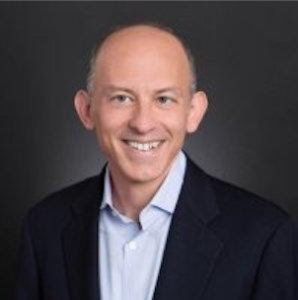 By APARAJITA BANERJEE
By APARAJITA BANERJEE
Leaders in Energy conducted a 5-session Green Career Momentum (GCM), from May 17-June 21, 2018, to help those seeking to land or create their dream green job. At each session, speakers in different sectors, e.g., clean energy, circular economy, natural resources, etc. provided their expertise for participants to learn about opportunities in the green economy. The sessions included interactive exercises to practice skills and opportunities for networking. Dr. Beth Offenbacker, Principle, Waterford Inc, and Director for Training and Development, Leaders in Energy, was the instructor.
This article provides highlights from the Green Career Momentum session titled “Getting in the Door: Executive Communications, Resumes, and Cover Letter.” Skills were practiced during the session on techniques to develop rapport for successful interviewing. The session took place virtually on May 31, 2018.
Writing the Perfect Resume
The session’s first speaker was Edythe Richards, a Leadership/Organizational Development Specialist with the Organization and Leadership Development at the Metropolitan Washington Airports Authority. She specializes in resume writing, career transition, and Emotional Intelligence. She shared her insights on how to write the perfect resume to get into the door to be interviewed for a sustainability-related job.

Edythe Richards, Leadership/Organizational Development Specialist, Metropolitan Washington Airports Authority
Richards began the presentation by pointing out some common resume-writing mistakes, such as having a ‘generic’ format; typographical errors in the resume; outdated styles; or having overly lengthy resumes. She advised that resumes should not be job-driven but achievement driven where jobseekers tailor makes their past successes in earlier roles they have held in their careers in a way that aligns with the requirements of the jobs for which they want to apply. Starting with a well-written summary section of the resume that is altered and tailor-made every time it is sent out to draw the attention of the readers to make them read the rest of the resume, the job seeker can highlight their unique skills and talents, following that with experience and education sections. Jobseekers who have a long career history may shorten the length of their resume by only mentioning job roles that are similar to the job they are applying for or the positions in which they have acquired vital skills or have noteworthy achievements. To summarize, Richards opined that there are no set templates for resume writing and much depends on the resume writer on how best they can use the space to market themselves to the potential employer.
Key Obstacles and Challenges for Job Seekers
Richards also pointed out that in addition to attentively writing an impressive resume, jobseekers should be aware of the key hurdles one must cross before their resume reaches the hiring professional associated with the job posting. These obstacles come in the form of online job boards which are open to all job seekers worldwide thus intensifying competition, applicant tracking systems that electronically scan resumes, and the 5-second scan in which a hiring person determines whether the resume is a good fit. Given these challenges, the critical point is to make the resume very tailor-made including keywords from the job post, and making sure it is clear, and easily readable. Additionally, each well-written resume should be sent out with a cover letter tailored to the job.
Apart from these current resumes and cover-writing tips, Richards also shared her experiences of working with green job seekers and shed light on the most significant challenges those seeking employment in the industry may face. As the industry is new, job-seekers are often confused on how to find their fit. They may lack awareness of the industry as well as how their skills can help them be great employees even in a new industry. Some job seekers also find it challenging to address employment gaps in their resume or the reason why they are looking for opportunities in a sector where they have no previous experience. According to Richards, these hurdles can be overcome if the jobseekers have a clear idea of their skills and capabilities. Also, career coaching can help them to find their path if the task becomes daunting. She concluded that the best practices to follow while seeking a job are to start by critical self-analysis, then understanding the audience to identify their fit, and how to use the resume as an opportunity to showcase the fit.
Resources for the Green Job Search
The second session speaker was Leonard Adler, founder of the Green Jobs Network, a social enterprise that helps job seekers who are interested in environmental stewardship to find jobs and build a professional network. Adler shared with the participants very useful tips for the job search toolbox. Adler explained that job seekers can find green jobs in public, private, or non-profit sectors in areas such as energy efficiency, green building, natural resource management, sustainable agriculture, recycling, and renewable energy. Therefore, green jobs are any jobs that provide social and environmental benefits.

Leonard Adler, founder of the Green Jobs Network
To find green jobs, Adler suggested that a job seeker can begin by looking into general boards that cover many industries and sectors, and which will include green jobs, e.g., Craigslist and Indeed. There are also job boards specifically for green jobs, and the Green Jobs Network maintains a list of these boards to assist job seekers. Specific sector jobs can also be found in websites maintained by associations like the American Wind Energy Association where sector-specific jobs are posted by employers. Jobs seekers interested in the non-profit sector can find jobs posted in Idealist along with other similar job boards. Social media platforms like LinkedIn, Twitter, and Facebook are becoming increasingly important places for job posting. LinkedIn has a specific functionality for job searches along people to apply using their LinkedIn profiles. The additional benefit of LinkedIn is that it also shows people in the network who can act as a referral. Facebook is also an evolving platform for job posting that can help job seekers find jobs. The key takeaway from Adler is to remain open to trying new job-seeking strategies, particularly using digital platforms as both the job seeking process and green economy continues to evolve.
Leaders in Energy will be conducting its 5thannual Green Jobs Forum on August 16th, 2018. See more details here.
Aparajita Banerjee, Ph.D. in Environmental and Energy Policy, is interested in exploring how effective policies can be framed and implemented to transition to a sustainable and alternative future. Her expertise are in bioenergy and renewable energy, sharing and circular economy, and degrowth. Apart from publishing in different peer-reviewed journals, she has recently co-edited a book titled “Environmental Policy and the Pursuit of Sustainability.”



Leave a Reply